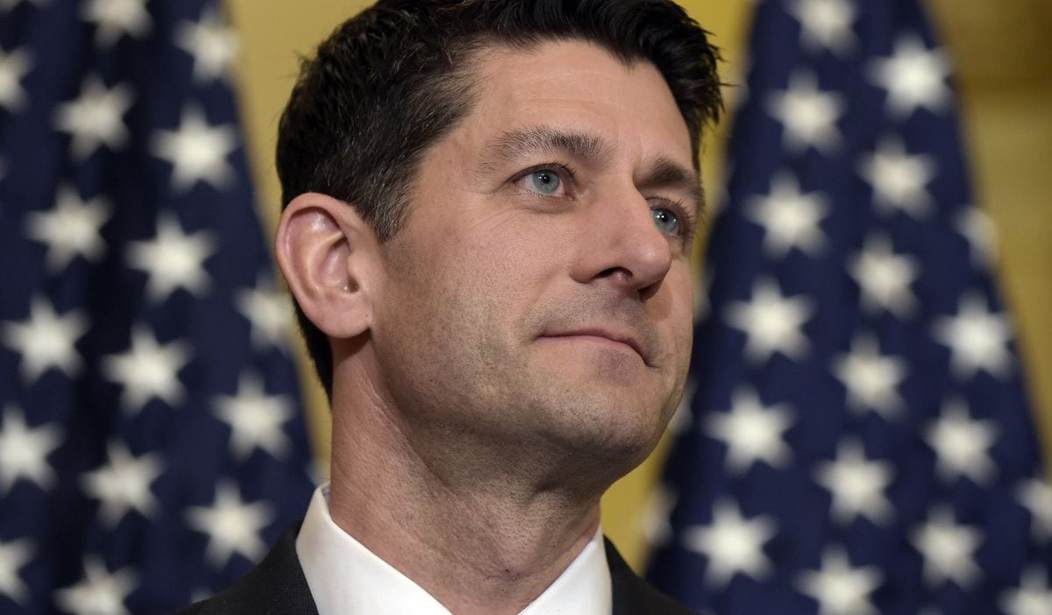The GOP replacement for Obamacare is out and, if preliminary reviews are any indication, the bill — or anything like it — will not make it to the floor of the House for a vote.
No one likes it. I mean, no one. Conservatives wouldn’t like anything that wasn’t a complete, immediate, and total repeal of Obamacare. Senate Republicans are terrified that the bill would evidently throw millions of Americans off their insurance policies by making them unaffordable.
There are complaints from GOP governors about ditching the Medicaid expansion. Fiscal hawks are horrified at the tax credit idea that would replace direct subsidies. It’s too expensive, too timid, too much of a compromise that, in the end, does very little to solve the huge problems caused by Obamacare.
In short, I don’t think even Paul Ryan’s mother likes this bill.
But the flip side of this is that President Trump wants an Obamacare replacement bill, so there’s going to be something members of Congress can vote on eventually. It probably won’t look anything like the current replacement bill — and for very good reason. House conservatives, safely ensconced in their gerrymandered Republican districts, don’t care, but Republican senators up for re-election in 2018 and 2020 remember what happened to the Democrats in 2010 when about 5 million Americans lost their insurance. That rage fueled the Tea Party and led to a slaughter of the Democrats at the polls.
What makes that scenario a possibility in 2018 is that the Republican House has presented a bill that doesn’t repeal Obamacare or touch many of the rules and regulations that led to skyrocketing insurance premiums. It also doesn’t fix the all-important issue of choice.
It is a bill in search of a purpose.
There is no innovation, and no way to lower costs. While some of the regulations are tweaked with more flexibility, the 800-pound gorilla in the room — guaranteed issue mixed with community rating (which is responsible for almost all of the premium hikes) — is left in place. Nor does this bill repeal the mandated essential benefits, which require insurers to cover a speci
fic number of people and sex change operations, maternity care for men, etc.
And even the repeal of actuarial value “metal” requirements (platinum, gold, silver, bronze) — the most positive of the outlined changes — would not take place until the 2020 plans.
Amazingly, while the “American Health Care Act” blows up the insurance market in order to mandate coverage of the sick, it still throws a whopping $100 billion at states in order to further subsidies to the poor and the sick (on top of Medicaid expansion and exchange subsidies).
Furthermore, the existence of the exchanges and the subsidies being steered to those exchanges will force insurers to continue competing for government-run health care that is actuarially insolvent. This continued structure will ensure that startup companies — which lack economies of scale to operate within this rigid (albeit slightly relaxed) structure — cannot enter the market. That is the core of what ails the health care industry.
On top of leaving the regulatory regime and the rigid exchanges, this House bill replaces the income-based subsidies with age-based subsidies – ranging from $2,000 for younger people to $4,000 a year for older enrollees, and as much as $14,000 for a family. It is a massive new entitlement for middle-income and lower-income Americans. It would apply in full for families earning up to $150,000, and then phased out $100 per thousand dollars earned over that threshold. Thus, a family could theoretically get some sort of subsidy well into the $200,000-plus income level.
As for Medicaid, the draft plan grandfathers in the entirety of the Obamacare expansion. Worse, it doesn’t freeze future enrollment for another two years, which will incentivize states to massively expand Medicaid before 2020. It also throws another $10 billion to states that never expanded Medicaid.
Between the regulatory structure, subsidies, and Medicaid expansion, this bill is Obamacare. Literally.
The way the bill was written, it’s like the authors wanted to give each Republican faction something to support without offending the voters or the lobbyists. There is no rhyme or reason to it. It wasn’t created to solve problems as much as it was cobbled together with kite string and bubble gum with the result being an unwieldy, incoherent mess.
Whatever the GOP eventually comes up with, there are going to be millions of Americans who will lose their government goodies. Be it a generous subsidy that allows them to afford insurance, or a repeal of Medicaid expansion that will hit the working poor hardest, the Obamacare replacement bill will be a political experiment in trying to shrink the size of the federal government. No one has ever tried to take away an entitlement from the voters before.
What happens when Congress repeals a popular government benefit that voters have enjoyed for several years? Can Republicans convince people who lose their subsidy or Medicaid that it’s for their own good and the good of the country? Or will the social Darwinists give the voters the middle finger, telling them the equivalent of Marie Antoinette’s “Let them eat cake”? Will they urge them to suck it up and bear their sorrows in silence?
I agree with conservatives. If this is the best the Republican leadership can do in the House, outright repeal is a much better option. Better to start over clean and create legislation that addresses the numerous problems in the health insurance industry than try and force a new template over a wretchedly flawed and ruinously expensive government program.










Join the conversation as a VIP Member